Meet the Team
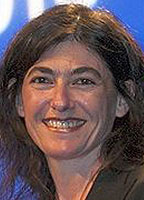
Dr. Goldstein is the Mount Sinai Professor in Neuroimaging and Addiction at the Department of Psychiatry with a secondary appointment at the Department of Neuroscience/Friedman Brain Institute (FBI) in the Icahn School of Medicine at Mount Sinai (ISMMS). Dr. Goldstein directs the Neuroimaging of Addictions and Related Conditions (NARC) Research Program, and previously the Brain Imaging Center (BIC) at ISMMS, both internationally recognized for their use and development of innovative multimodality neuroimaging methods (including MRI, PET, EEG/ERP) for the translational study of brain morphology and function.
Nationally and internationally known for her neuroimaging and neuropsychological studies in drug addiction, Dr. Goldstein formulated a theoretical model known as Impaired Response Inhibition and Salience Attribution (iRISA). Multiple neuroimaging modalities—including MRI, EEG/ERP, PET—and neuropsychological tests are used to explore the neurobiological underpinnings of iRISA in drug addiction and related conditions. This model has drawn considerable scientific attention (exceeding 3,000 citations for a review published in the Am J Psychiatry in 2002 and 2,000 for another review published in Nature Reviews Neuroscience in 2011). An important application of Dr. Goldstein’s research is to facilitate the development of intervention modalities that would improve cognitive and emotional function, leading to better treatment outcomes, in drug addiction and other chronically relapsing disorders of self-regulation.
Dr. Goldstein is a recognized leader in the neuroimaging study of the cognitive and emotional processes underlying human drug addiction. Her research interests include the elucidation of the role of dopamine and prefrontal cortical deficits in iRISA (Impairments in Response Inhibition and Salience Attribution or the compromised ability to change ongoing willed-behavior in response to an emotionally salient feedback) in drug addiction and other disorders of self-control. Dr. Goldstein's interests also include pharmacological fMRI, real-time neurofeedback using Brain Computer Interface, and brain stimulation (e.g., with tDCS). She has also been exploring the contribution of individual differences, including recency of drug use (across both stimulants and opiates), sex differences and polymorphisms in monoaminergic genes, to addiction and aggression, with a focus on the neural mechanisms underlying real-life/naturalistic brain function/behavior, reinforcement learning, risk-taking and extinction, choice and decision-making, and self-awareness and insight into severity of illness. Read more.
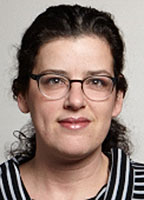
Nelly Alia-Klein, PhD, Co-Chief
Dr. Nelly Alia-Klein is a Professor in the Department of Psychiatry (primary) and Department of Neuroscience (secondary) at the Medical School. Dr. Alia-Klein received her PhD in Clinical Psychology from the Graduate School of Arts and Sciences at Columbia University, New York City, in 2002 followed by an internship at Hillside Hospital in adult psychology. She completed a three-year post-doctorate in neuroimaging of addiction at Brookhaven National Laboratory T32 training program. Dr. Alia-Klein’s research interests concentrate on gene-brain-behavior mechanisms underlying violent behaviors and drug addiction. She has both the expertise and clinical experience to conduct innovative and integrated basic and clinical translational research studies that aim to elucidate complex psychopathology.
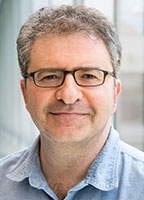
Eduardo Butelman, PhD, MS
Eduardo is an Assistant Professor of Psychiatry at the Icahn School of Medicine at Mount Sinai. He received his Doctorate in Psychology from University College London, followed by training in behavioral pharmacology at the University of Michigan School of Medicine. He then joined the Research Faculty in the Laboratory on the Biology of Addictive Diseases at the Rockefeller University. He is a Licensed Marriage and Family Therapist.
Eduardo’s initial work focused on the behavioral, analgesic and respiratory effects of opioids in translational models. He has also worked extensively in peripheral biomarker studies, both in clinical and preclinical studies. More recently he has also characterized major stages in the trajectory of opioid and cocaine use disorders in clinical studies, and their relationship to sex/gender and adolescent exposure. Eduardo is also a Licensed Marriage and Family Therapist, with direct clinical experience.
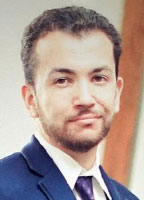
Ahmet Ceceli is an instructor at NARC, where he completed his postdoctoral fellowship. He received his master’s degree in New York University (PI: Dr. Elizabeth Phelps), where he studied the psychophysiological bases of emotional learning. He completed his PhD in psychology, specializing in cognitive neuroscience, at Rutgers University-Newark (PI: Dr. Elizabeth Tricomi), investigating the neurobehavioral mechanisms underlying habits in attention-deficit/hyperactivity disorder. Ahmet’s research focuses on the neural and behavioral mechanisms underlying self-control to identify markers of disease severity and recovery in people with substance use disorders. To this end, Ahmet leverages task and real-world behavior, ecological momentary assessments, psychophysiology, and structural and functional MRI to examine how people pursue goals, rely on habits, and stop impulses. The ultimate goal of his research is to help improve addiction interventions with neuroscience-informed insights. Ahmet’s work has been supported via federal and foundational awards, including the NIDA K99/R00 Pathway to Independence Award, the Brain & Behavior Research Foundation Young Investigator Award, a NIDA T32 in Substance Use Disorders, and the ASCP New Investigator Award. [Google scholar link] [bluesky link] [twitter link] [CV link]
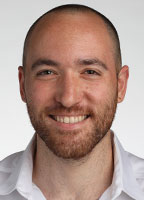
Greg Kronberg, PhD
Greg completed his PhD in Biomedical Engineering from the City College of New York, where he worked in Lucas C. Parra’s group. His graduate work in neural engineering focused on optimizing non-invasive brain stimulation technologies. He used computational models in vitro experiments to understand how weak electromagnetic fields can be used to alter synaptic plasticity. Greg joined the NARC lab as a postdoc in 2020. He is interested in using tools from engineering, machine learning, and computational neuroscience to subtype individuals with substance use disorders and help predict treatment outcomes. He is currently characterizing the dynamics of brain networks in fMRI responses to naturalistic stimuli to identify addiction and recovery related brain states.
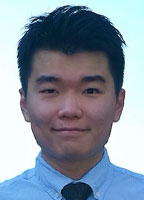
Yuefeng Huang, PhD
Yuefeng Huang received his Ph.D. degree from the University of Texas at Dallas after completing training in the Cognition and Neuroscience program under the supervision of Dr. Sven Vanneste. His graduate work focuses on using non-invasive brain stimulation (e.g., tDCS) and neuroimaging methods (e.g., fMRI, EEG) to study human memory functions. After graduated, he joined the Neuroimaging of Addictions and Related Conditions (NARC) lab as a postdoctoral fellow in 2020. In the NARC lab, he is interested in studying the neuromechanism of addiction and aiming to identify neuromarkers for therapeutic Interventions. He will also focus on studying sex differences in addiction and how sex hormones modulate the impaired response inhibition and salience attribution (iRISA) model in addiction.
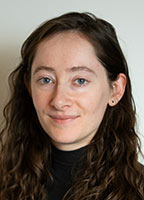
Sarah King
Sarah received her PhD in Neuroscience at Mount Sinai with the NARC lab. Her graduate work focused on applying neuroimaging (including diffusion and functional MRI) and natural language processing techniques to characterize brain and behavioral signatures of addiction and their changes during treatment and recovery. As a T32-supported postdoctoral fellow, she is expanding this work to investigate how linguistic markers can capture dynamic brain states that track recovery and predict treatment outcomes. Her interests include developing language-based measures as ecologically valid, clinically translatable tools for probing the neurocognitive mechanisms of addiction and related psychiatric conditions.

Natalie McClain
Natalie is a PhD student at the NARC lab. She graduated from Barnard College with a degree in Cellular Neuroscience and Mathematics in 2022. Before joining the NARC lab, Natalie worked in the Losonczy Lab at the Zuckerman Institute under Adrian Negrean investigating in vivo place-cell tuning and the electrophysiological mechanisms of memory retrieval. Currently, she is pursuing a doctoral degree in neuroscience to help unravel the complex neural underpinnings of substance abuse. This is motivated by her desire to both advance our understanding of the addicted brain and to contribute to the development of therapeutic interventions for individuals suffering from addiction.

Maggie Boros
Maggie is a clinical research coordinator at the NARC lab. She graduated from Fordham University in 2023 with a degree in neuroscience and philosophy, where she was a part of the Memory and Aging Lab under Dr. Karen Siedlecki. There, she studied the impact of COVID-19 infection on ACE2 receptors in olfactory neuroepithelium. Prior to the NARC lab, Maggie was a volunteer researcher at the Joyner Lab of Memorial Sloan Kettering where she studied the impact of Sonic hedgehog protein on the cerebellar development of mice. Maggie plans to continue in clinical research and take part in developing more efficacious treatments for people who struggle with addiction.
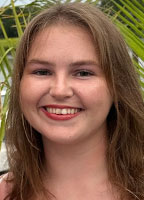
Rachel Drury
Rachel joined the NARC lab as a clinical research coordinator. She graduated from Northwestern University with a double major in psychology and opera performance. Following her undergraduate studies, Rachel was a research assistant and paraeducator at the International Institute for the Brain, where her team investigated the cognitive effects of novel music therapy treatments in children with severe traumatic brain injuries. Rachel is interested in studying how the neurobiological underpinnings of substance use disorders can shape novel treatments such as mindfulness-based interventions and transcranial direct current stimulation (tDCS). She aspires to continue pursuing addiction research as a clinical psychologist.

Lesley Tan
Lesley is a volunteer at the NARC lab. She is currently an undergraduate student at New York University studying Psychology. Lesley is also involved in the Motivation Lab in the NYU Psychology department under Gabriele Oettingen and Peter Gollwitzer investigating the effects of a self-regulation strategy known as mental contrasting to support flow, a mental state when one is immersed in an activity. Lesley is interested in exploring the extent to which an individual has agency over their own wellbeing while recognizing the social and neurological boundaries of wellness. She intends on pursuing a medical degree in psychiatry.
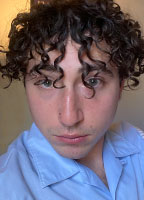
Cameron Slater
Cameron Slater is volunteer at the NARC Lab. His work primarily consists of direct participant data collection. He is expected to graduate from New York University in May 2025 with a Major in Psychology.

Alan Charles
Alan Charles joined the NARC Lab in early 2021. He is a recovering addict and author of Walking Out The Other Side, a riveting account of his journey from the throes of addiction to the miracle of sobriety. He speaks openly about his ordeal to a wide spectrum of audiences to bring his message of hope and healing. He previously hosted The Alan Charles Show - a weekly live show where he had a real, constructive conversation about addiction that helped to lead his listeners to prevention, treatment and recovery services. Alan's raw honesty and courageous heart breaks the stigma of addiction and offers a unique perspective into the mind of an addict. He shed light on a dark world and brought his listeners to a true understanding of the grip of addiction. Alan is an important part of the NARC team's subject recruitment efforts. Some of his work includes communicating clearly to people with addiction about our studies and their relevance to their struggles.
Alan grew up in Yonkers, NY and graduated from The University of Tampa. As a former professional baseball player and former harness racing driver and trainer, he has proven himself to be a unique and ambitious individual who goes after his dreams. Alan's most important dream-sobriety-has finally come true, and he's passionate about showing others how to achieve this dream as well.
Lab Alumni
- Pierre-Olivier Gaudreault - Senior Healthcare Consultant at CIM Conseil & Clinical Psychologist at HALEO Clinic
- Muhammad Parvaz - Assistant Professor of Psychiatry and Neuroscience at the Icahn School of Medicine, Principal Investigator of the Motivational and Affective Psychopathology Lab
- Anna Konova - Assistant Professor at Rutgers University, Principal Invesigator of the Addiction and Decision Neuroscience Lab
- Scott Moeller - Vice Chair for Research, Associate Professor, and Principal Investigator at Stony Brook University
- Anna Zilverstand - Assistant Professor and Principal Investigator at the University of Minnesota
- Rachel Rabin - Assistant Professor and Principal Investigator at McGill University
- Anna Huang – Assistant Professor at Vanderbilt University
- Sivan Kinreich – Research Scientist at SUNY Downstate Medical Center, Department of Psychiatry
- Keren Bachi - Assistant Professor at the Icahn School of Medicine, Principal Investigator of the Psychosocial Neuroimmune Addiction Laboratory
- Gabriela Gan – Project Manager at Ludwig Boltzmann Gesellschaft, Open Innovation in Science Center
Collaborations
In addition to our core team, we collaborate with the following investigators:
- Guillermo Cecchi, PhD and Carla Agurto, PhD (IBM)
- Conor Liston, MD, PhD (Weill Cornell Medical College)
- The ENIGMA Addiction working group (University of Vermont)
- Junqian (Gordon) Xu, PhD (Baylor College of Medicine)
We are looking for volunteers to participate in our research efforts. We need the following:
Study Participants. We seek current or past cocaine/crack users or individuals addicted to heroin between the ages of 18 and 60 as well as people with difficulties controlling anger (ages 18 to 45). We need people who are in good health. Confidentiality maintained. Please contact narc@mssm.edu or 347-443-2395 for more information.
Volunteer Research Assistant. We are looking for current undergraduates or recent graduates to fill volunteer research assistant positions. We need motivated, detail-oriented people with strong communication skills. Candidates must be available a minimum of 16 hours a week during weekdays, regular working hours, for a full year. Research Assistants help with all aspects of the research process including performing neuroimaging and neuropsychological procedures, conducting data analysis and management, and recruiting participants. Please send your resume, transcript, semester and summer availability, and earliest start date to narc@mssm.edu or Dr. Goldstein at rita.goldstein@mssm.edu. If we are able to match your interest with a current research opportunity, we will contact you for an interview. We require letters of recommendation before conducting interviews.